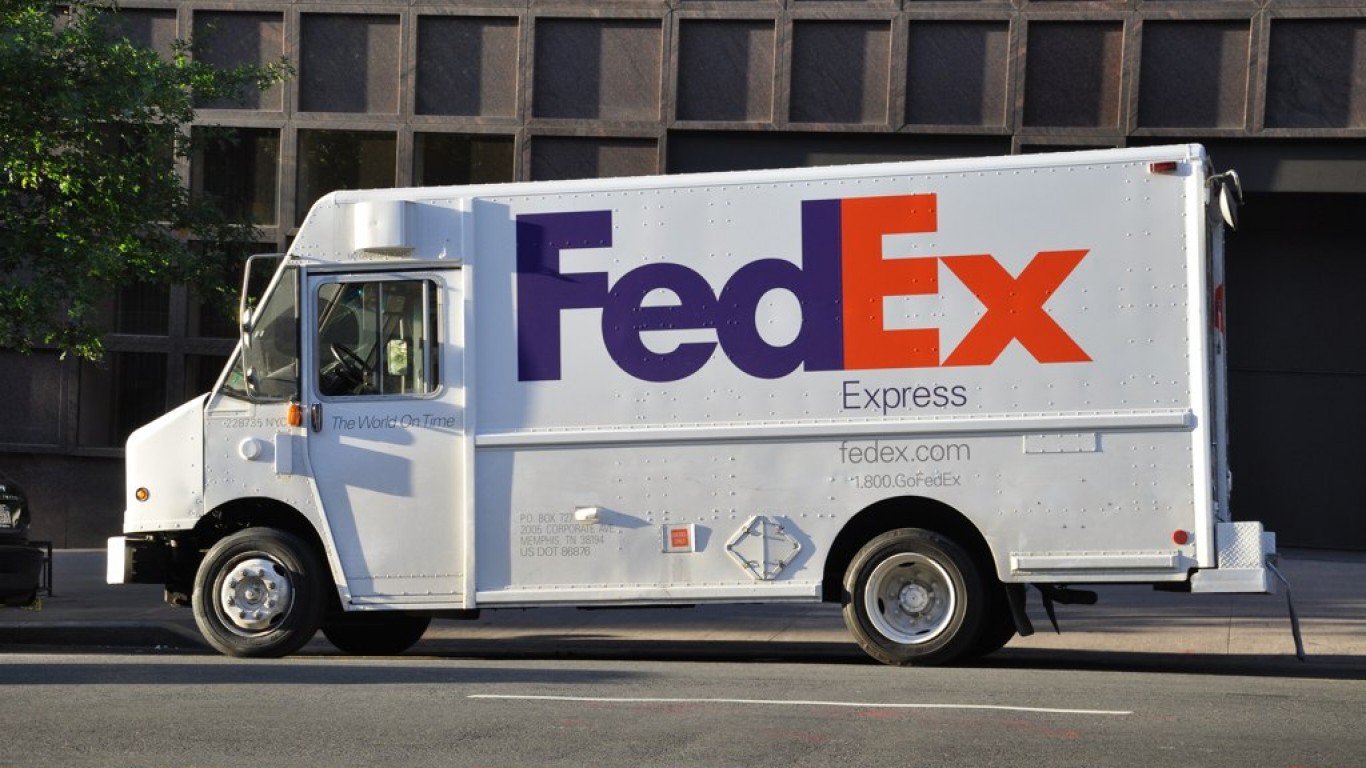Investing
Billionaire Bill Gates Continues to Sell Microsoft Stock. He's Buying This Top Name Instead

Published:

Bill Gates is best known as the founder and former CEO of Microsoft (NASDAQ:MSFT), and that’s how he’ll be remembered in the history books. However, Bill Gates has also proven himself to be an apt investor over time, diversifying his portfolio away from Microsoft into a more diverse portfolio of stocks across his personal portfolio and his philanthropic/charitable organizations.
Now, one could make the very astute argument that should Gates have held onto his Microsoft stock all this years and chosen not to diversify, he’d still be the richest man in the world. That’s true. However, Bill Gates has continued to further diversify his portfolio recently, continuing to sell shares of Microsoft while acquiring positions in other high-quality assets. Among Gates’ most recent transactions was a sale of 5.9 million shares of Microsoft stock (representing a 17% decrease in his stake during Q3 of last year), reflecting a strategic shift toward greater diversification.
Among the key companies Gates has been focused on is Paccar (NASDAQ:PCAR), in which Gates acquired a significant stake of 1 million shares valued at around $98.68 million. This company is well-known for manufacturing trucks and has a strong presence in the North American market. In addition to Paccar, Gates has increased his investment in FedEx Corporation (NYSE:FDX), raising his holdings by over 1 million shares. This portfolio increase now means Fedex makes up more than 0.6% of Gates’ overall portfolio.
Let’s dive into why this major player in the logistics and parcel delivery industry is worth considering for investors looking to diversify or rebalance their portfolios to kick off 2025.

FedEx is a leading package-delivery company and the largest less-than-truckload (LTL) carrier in the U.S., meaning this company is largely considered to be a bellwether for the economy. Shares of this freight and logistics giant are up 17% year-to-date, despite volatility. Indeed, shares of the logistics company dropped sharply after its most recent earnings report and a fiscal 2025 guidance cut, leading to various analyst downgrades following this move.
FedEx’s Q1 revenue dipped to $21.6 billion, reflecting lower priority service demand and a sales-mix shift, while net income dropped to $790 million. The company lowered its revenue growth guidance on this report to the low single digits, as FedEx accounted it would be pursuing $2.2 billion in permanent cost reductions under its DRIVE transformation plan.
In the company’s 2024 fiscal year, FedEx experienced a decline in overall revenue, bringing in $87.7 billion compared to $90.2 billion in the previous year. The company’s’ fourth quarter alone was slightly positive, with FedEx reporting revenue of $22.1 billion, up slightly from $21.9 billion a year earlier. Net income also disappointed, coming in at $1.47 billion, translating to earnings per share (EPS) of $5.94. This was a decrease from the prior year’s net income of $1.54 billion or EPS of $6.05.
FedEx’s operating income also fell, reflecting challenges such as reduced demand in its Freight segment and the loss of its U.S. Postal Service contract to UPS, which is expected to impact future revenues significantly. Despite these challenges, FedEx’s aggressive cost-cutting measures under its DRIVE transformation program have begun to yield positive results, leading to an increase in operating margins during the latter part of the fiscal year

On December 19, 2024, FedEx announced plans to spin off FedEx Freight into a separate publicly traded company within 18 months, pending regulatory approval. The move aims to create two independent, industry-leading firms and qualifies as a tax-free separation.
Goldman Sachs and Skadden, Arps are advising on the transaction. FedEx also revised its FY25 outlook on this news. The company’s new forecast projects flat revenue growth, adjusted EPS of $16.45-$17.45 (down from $17.90-$18.90), and optimized EPS of $19.00-$20.00 (lowered from $20.00-$21.00).
With the spin-off of its Freight business announcement, FedEx also lowered its profit forecast, citing weak U.S. demand in its Express unit. CEO Raj Subramaniam called it the right time to separate as the Freight business remains undervalued. Analysts estimate FedEx Freight’s value at $30-$35 billion. The spin-off aims to enhance focus, agility, and market value while maintaining synergies and unified branding. Both entities will benefit from strong balance sheets, distinct investment profiles, and opportunities for profitable growth.
Post-separation, FedEx aims to enhance shareholder value through strategic initiatives like DRIVE and Network 2.0, targeting $4 billion in cost savings by FY25 and $2 billion by FY27. FedEx Freight, holding a 17% market share, will emerge as the largest LTL carrier with a strong balance sheet, broad network, and efficient operations. Over the past five years, the company achieved 1,100 basis points of operating margin growth and steady profit increases, positioning FedEx well for continued leadership in the LTL market.

Bill Gates has shown a strong interest in FedEx stock, recently increasing his stake by 65% to own approximately 2.53 million shares. This move aligns with the Bill & Melinda Gates Foundation’s strategy of investing in companies that are poised for growth and resilience in the face of economic fluctuations.
As a major player in the logistics and transportation sector, FedEx is often viewed as a barometer for economic health. Indeed, the company’s financial performance typically reflects broader economic trends, meaning this is a company viewed as an economic barometer of sorts. So, for those bullish on the future of the North American (and global) economy, FDX stock remains a top option to consider for the long-term.
Moreover, FedEx’s recent initiatives aimed at cost reduction and digital optimization provide long-term promise. With an annual revenue nearing $88 billion, there’s reason to believe the Gates’ foundation appears optimistic about FedEx’s recovery and growth potential, making it a key component of their investment portfolio.
The last few years made people forget how much banks and CD’s can pay. Meanwhile, interest rates have spiked and many can afford to pay you much more, but most are keeping yields low and hoping you won’t notice.
But there is good news. To win qualified customers, some accounts are paying almost 10x the national average! That’s an incredible way to keep your money safe and earn more at the same time. Our top pick for high yield savings accounts includes other benefits as well. You can earn up to 3.80% with a Checking & Savings Account today Sign up and get up to $300 with direct deposit. No account fees. FDIC Insured.
Click here to see how much more you could be earning on your savings today. It takes just a few minutes to open an account to make your money work for you.
Thank you for reading! Have some feedback for us?
Contact the 24/7 Wall St. editorial team.